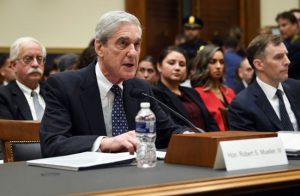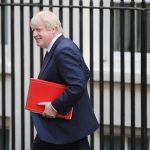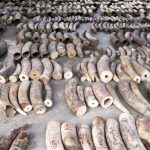Former U.S. Special Counsel Robert Mueller said on Wednesday his report on the Russia probe did not exonerate U.S. President Donald Trump of obstructing justice.
Former Special Counsel Robert Mueller testifies for the House Judiciary Committee hearing on his probe into alleged Russian interference in the 2016 U.S. presidential election on July 24, 2019. [Photo: USA TODAY via IC/Jack Gruber]
“The president was not exculpated for the acts that he allegedly committed,” Mueller told a hearing before the House Judiciary Committee about his investigation into alleged Russian interference in the 2016 U.S. presidential election and whether Trump had obstructed justice.
He told lawmakers he would not say if the president had committed a crime.
“Based on Justice Department policy and principles of fairness, we decided we would not make a determination as to whether the president committed a crime. That was our decision then and it remains our decision today,” Mueller said during the hearing.
He also cited Justice Department rules that he could not prosecute a sitting president, while suggesting that Trump could face legal hurdles after leaving the White House.
In a series of tweets on Wednesday morning, Trump renewed his attacks on the investigation and accused Mueller of being “highly conflicted.”
Mueller is slated to appear before the House Intelligence Committee later in the day. The two hearings are expected to last roughly five hours combined. He has reiterated that his testimony will stay within what’s already been revealed in his report.
Appointed by the Justice Department in May 2017 to take over the Russia probe, Mueller concluded his 22-month investigation in March by submitting a report to William Barr, who became Attorney General about a month earlier.
The report stated that there was no evidence that Trump’s campaign conspired with the Russian government during the 2016 election but didn’t conclude if the president had obstructed justice.
Instead, Mueller recounted 10 episodes involving Trump and discussed potential legal theories for connecting these actions to elements of an obstruction offense.
It was the Justice Department that concluded that Mueller did not have “sufficient” evidence to support a charge in the obstruction case, a decision that has drawn scrutiny from Democrats, who have called for more investigations and the former special counsel’s congressional appearance.
The Russia investigation, which Trump has called a “witch hunt,” haunted the White House for nearly two years, while leading to criminal charges against 34 individuals, including several Trump campaign associates, and three Russian entities.
Russia has repeatedly denied meddling in the election.





